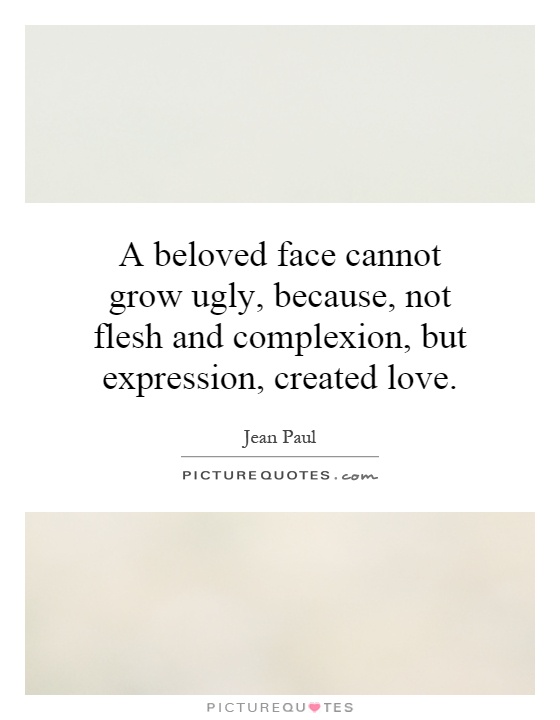A beloved face cannot grow ugly, because, not flesh and complexion, but expression, created love

A beloved face cannot grow ugly, because, not flesh and complexion, but expression, created love
Jean Paul, the German Romantic writer, understood the power of love and expression in shaping one's perception of beauty. In his works, he often explored the idea that a beloved face cannot grow ugly because it is not the physical features of a person that create love, but rather the expression that emanates from within.Jean Paul believed that true beauty lies in the soul of a person, in their thoughts, feelings, and emotions. He understood that the physical appearance of a person may change over time, but the essence of who they are remains constant. It is this essence, this inner beauty, that creates love and admiration in others.
In his novel "Titan", Jean Paul explores the theme of love and beauty through the character of Albano, a young artist who falls in love with the beautiful Linda. Despite Linda's physical beauty, it is her inner qualities, her kindness, intelligence, and compassion, that truly captivate Albano. He sees beyond her outward appearance and is drawn to the beauty of her soul.
Jean Paul's belief that a beloved face cannot grow ugly is a powerful reminder that true beauty is timeless and transcends the physical. It is the expression of love, kindness, and compassion that radiates from within a person that truly makes them beautiful. This expression of inner beauty is what creates a deep and lasting connection between individuals, forming the foundation of love and admiration.












 Friendship Quotes
Friendship Quotes Love Quotes
Love Quotes Life Quotes
Life Quotes Funny Quotes
Funny Quotes Motivational Quotes
Motivational Quotes Inspirational Quotes
Inspirational Quotes